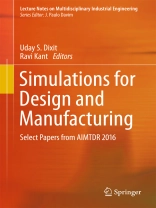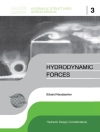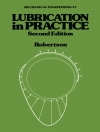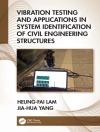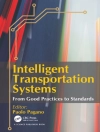This book focuses on numerical simulations of manufacturing processes, discussing the use of numerical simulation techniques for design and analysis of the components and the manufacturing systems. Experimental studies on manufacturing processes are costly, time consuming and limited to the facilities available. Numerical simulations can help study the process at a faster rate and for a wide range of process conditions. They also provide good prediction accuracy and deeper insights into the process. The simulation models do not require any pre-simulation, experimental or analytical results, making them highly suitable and widely used for the reliable prediction of process outcomes. The book is based on selected proceedings of AIMTDR 2016. The chapters discuss topics relating to various simulation techniques, such as computational fluid dynamics, heat flow, thermo-mechanical analysis, molecular dynamics, multibody dynamic analysis, and operational modal analysis. These simulation techniques are used to: 1) design the components, 2) to investigate the effect of critical process parameters on the process outcome, 3) to explore the physics of the process, 4) to analyse the feasibility of the process or design, and 5) to optimize the process. A wide range of advanced manufacturing processes are covered, including friction stir welding, electro-discharge machining, electro-chemical machining, magnetic pulse welding, milling with MQL (minimum quantity lubrication), electromagnetic cladding, abrasive flow machining, incremental sheet forming, ultrasonic assisted turning, TIG welding, and laser sintering. This book will be useful to researchers and professional engineers alike.
İçerik tablosu
Design and Analysis of an Innovative Nozzle.- Distribution of Electromagnetic Field and Pressure of Single Turn Circular Coil for Magnetic Pulse Welding using FEM.- Computational Fluid Dynamics Analysis of MQL Spray Parameters and its Influence on MQL Milling of SS304.- Pulse Electromagnetic Cladding of Al-Tube on DP Steel Rod.- Design, Development and Computational Analysis of Low Pressure Abrasive Flow Finishing Machine.- Dynamic Analysis of Robotic Manipulator for Incremental Sheet Metal Forming.- Finite Element and Experimental Study of Self-Reacting Friction Stir Welding of Aluminium Alloy AA6061-T6.- Prediction of Critical Thinning during Self-Pierced Riveting of Sheets.- Numerical Prediction of Fracture in Parts formed with Incremental Sheet Forming Process.- Numerical Modeling of Micro-EDM Process using Finite Volume Method.- Experimental Studies and Numerical Simulations of a Displacement Amplifying Compliant Mechanism.- Study on the Delamination of GFRP Composites in Drilling: A Finite Element Model.- A Coupled Thermo-mechanical Model to Predict Forces, Temperature and Material Flow in Friction Stir Welding.- Improving Dynamic Stability of Machine Tool Structure with Operational Modal Analysis.- A Novel Approach for Prediction and Calculation of Sheet Thinning in Incremental Sheet Forming.- Studies on Springback Effect of TIG Welded Ti-6Al-4V Sheets.- Finite Element Analysis of V-shape Incremental ECAP.- Finite Element Method Analysis of Electrochemical Discharge Machine using Explicit Dynamics ANSYS.- Molecular Dynamics Simulation Study of Neck-growth in Micro-selective Laser Sintering of Copper Nanoparticles.
Yazar hakkında
Dr. Uday Shanker Dixit received his B.E. degree in Mechanical Engineering from the University of Roorkee (now the Indian Institute of Technology Roorkee) in 1987, M.Tech. and Ph.D in Mechanical Engineering from the Indian Institute of Technology Kanpur (IIT Kanpur) in 1993 and 1998 respectively. He has worked for two companies— HMT, Pinjore and INDOMAG Steel Technology, New Delhi, where his main responsibility was designing various machines. Dr. Dixit joined the Department of Mechanical Engineering, Indian Institute of Technology Guwahati (IIT Guwahati), in 1998, where he is currently a professor. He was also the Officiating Director of the Central Institute of Technology, Kokrajhar from February 2014 to May 2015. Dr. Dixit has been actively engaged in research in various areas of design and manufacturing for 25 years. He has authored/co-authored 75 journal papers, 91 conference papers, 20 book chapters and 6 books on mechanical engineering. He has also co-edited 3 booksrelated to manufacturing. Of his 9 books, 6 have been published by Springer. He has guest-edited 10 special issues of journals. He is currently an associate editor of the Journal of the Institution of Engineers (India), Series C. Dr. Dixit has investigated a number of sponsored projects and developed several courses. Presently, he is the vice-president of the AIMTDR conference.
Dr. Ravi Kant is an assistant professor at the Department of Mechanical Engineering, IIT Ropar. Prior to joining IIT Ropar, he was an assistant professor at the College of Engineering Pune (COEP), which is one of the oldest and most respected institutes in India. He received his bachelor’s degree in Mechanical Engineering at Maharshi Dayanand University, Rohtak (Haryana). He completed his M.Tech. at the Department of Mechanical Engineering, IIT Guwahati with a specialization in ‘Computer Assisted Manufacturing’, and worked on a project investigating the formability of adhesively bonded sheets. He also obtained his doctorate at IIT Guwahati, working on laser forming processes, including experimental studies, numerical simulations, soft-computing modeling and optimization. After his Ph D, he worked on inverse estimation of unknown parameters and laser-assisted adhesive joining of metal to polymer sheets. His research interests include laser-based manufacturing, modeling and optimization of modern manufacturing processes, transmission welding, adhesive joining, inverse estimation, ultra-high speed machining.
